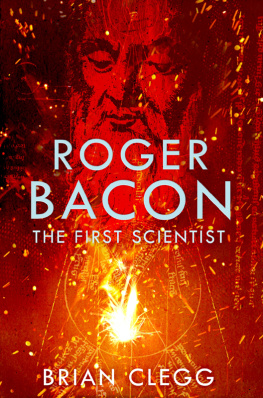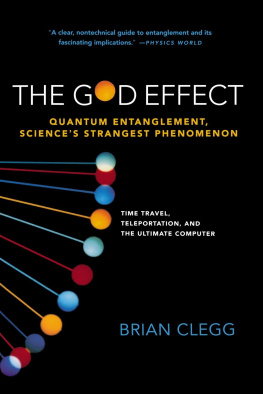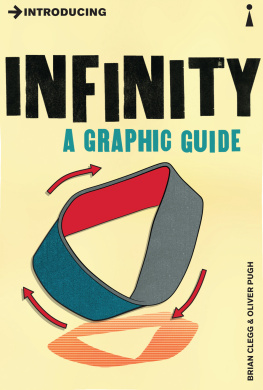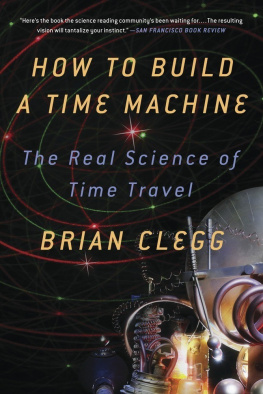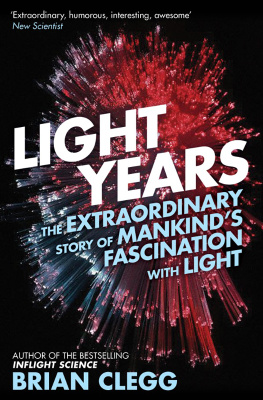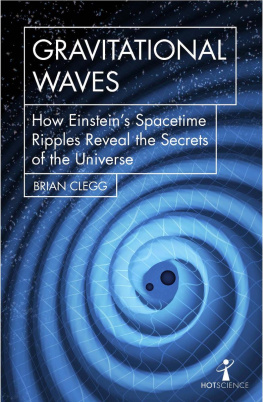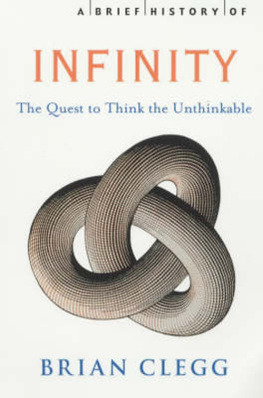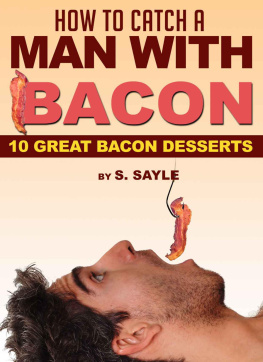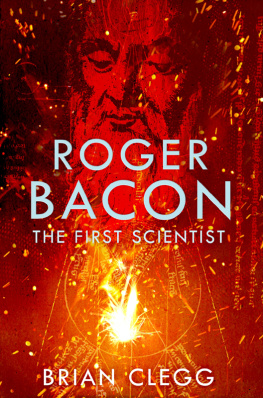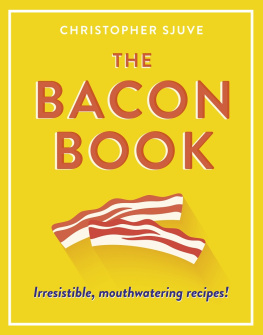The First Scientist
A Life of Roger Bacon
BRIAN CLEGG
CONSTABLE LONDON
Constable & Robinson Ltd
5556 Russell Square
London WC1B 4HP
www.constablerobinson.com
First published in the UK by Constable, an imprint of Constable & Robinson Ltd 2003
Copyright Brian Clegg 2003
The right of Brian Clegg to be identified as the author of this work has been asserted by him in accordance with the Copyright, Designs and Patents Act, 1988
All rights reserved. This book is sold subject to the condition that it shall not, by way of trade or otherwise, be lent, re-sold, hired out or otherwise circulated in any form of binding or cover other than that in which it is published and without a similar condition including this condition being imposed on the subsequent purchaser
A copy of the British Library Cataloguing in Publication Data is available from the British Library
ISBN 1-84119-618-5
eISBN: 978-147211-212-5
Printed and bound in the EU
Cover copyright Constable & Robinson
For David Ball (19552001), another magister
Contents
Illustrations
Acknowledgements
Many thanks to all those who have helped me bring this book into its final form. Specifically to Peter Cox, my agent, for his help in clarifying my ideas and selling the concept; to Vasko Kohlmeyer for many detailed thoughts on approach; to Nick Robinson, Jan Chamier, Carol OBrien, and Pete Duncan at Constable & Robinson for their enthusiasm; and to Lizzie Hutchins and particularly John Woodruff for making the copy-editing process a revelation.
Preface
The year 1992 should have been remembered as the 700th anniversary of the death of a man who changed the world. Yet the occasion passed without note. Few know of the remarkable achievements of someone who, more than any other, can be said to have invented science. When I told a friend I was writing a book about the thirteenth-century scientist Roger Bacon, he was surprised. Surely, he said, Bacon lived in Elizabethan times? This astonishingly original thinker has been obscured by the shadow of his unrelated and, in some ways, inferior namesake, Francis Bacon. It is telling that the otherwise authoritative volume of The Oxford History of England that deals with the thirteenth century all 829 pages of it makes only a single passing reference to Roger Bacon. which was written in 1952, no attempt has been made to put his life into perspective in a generally accessible work. This is a terrible injustice.
Bacons individual inspirations are remarkable enough. When Christopher Columbus wrote to Ferdinand and Isabella of Castille to win their support for his voyages of exploration, he unknowingly used Bacons work to promote his cause. Columbus thought he was quoting the French Cardinal Pierre dAilly but the section of dAillys book he found so impressive was lifted word for word from the writings of Roger Bacon. Armando Corteso, the respected Portuguese historian of map-making, comments that Bacons work was exceptionally significantmaps of his time to ones that used a true map projection, the first such in over a thousand years.
Equally influential was Bacons awareness of the importance of mathematics to science. Where his namesake, the Elizabethan wunderkind Francis Bacon, had little enthusiasm for mathematics, Roger Bacon knew that it was the mainstay of scientific thought, commenting, He who is ignorant of mathematics cannot know the other sciences and the things of this world.
Bacon was equally prescient on calendar reform. In David Ewing Duncans recent book on the calendar, Bacon is labelled a lone genius proclaiming the truth about time. Bacons efforts to revise the calendar, which by his time was ten days out of synchronization with reality, were unsuccessful in his own lifetime, but in 1582 Pope Gregory XIII commissioned a reform which adopted the measures Bacon had suggested. Great Britain and its colonies, America included, continued adrift in time until 1752.
John Dee, royal astrologer to Queen Elizabeth I, considered Bacon an unparalleled authority on the calendar, calling him the flower of whose worthy fame can never dye nor wither. Dee notes that Paul of Middelburg, the scientist and bishop born in 1446 who was to head a papal commission on calendar reform, made great use of Bacons work.
In optics, Bacons writings were vital works of reference well into the Renaissance. In 1614, for example, Professor Combach, a philosopher at the University of Marburg, republished Bacons optical work, calling him a most eminent man.light in the seventeenth century, even if they knew nothing of the man responsible for the work. Bacons understanding and imagination enabled him to foresee and describe instruments such as telescopes and microscopes, as well as such flights of fantasy as horseless carriages and flying machines.
Yet despite all these remarkable contributions, and a host of smaller firsts, it was Bacons development of the principle of experimental science that makes him so important. For thousands of years before Bacon, and as far ahead as Newtons time, it was normal practice to accept the word of authorities rather than to observe anew, frame hypotheses, and test them using scientific principles. But Bacon, like the modern scientists who followed him, rejected this natural philosophy. He would not accept pure argument; everything should be subjected to experiment.
So why, given this wonderful portfolio of originality, is Bacon now overlooked or under-rated? Prime responsibility has to lie with twentieth-century historians of science and their distorted view of Bacon. Typical was Lynn Thorndike, who remarked in his A History of Magic and Experimental Science that, It has yet to be proved that [Bacon] made any definite original contribution to any specific science. How could this frankly insulting image have developed?
From shortly after his death, the facts about Bacon were covered in layer after layer of myth and confusion. Although his work was known and widely used, the man himself disappeared, to be replaced by a fantasy figure. This fictional Bacon was considered a conjuror and a charlatan a great irony, considering the effort he had put into exposing the fraudulent basis of medieval magic. So strong was this image, though, that the translator of one of his works, writing in 1659, had to excuse his subject, saying that Bacons name might prove an inconvenience, but once his actual words were understood, the reader would have a new perspective.
Over time, as more and more of Bacons books were translated from the original Latin, his importance began to be re-evaluated. In the Victorian age, when the wonders of science and technology were being extolled around the world, Bacon was hailed as a scientific prophet, a nineteenth-century man calling out from the Middle Ages. But this image was not to last for long. Twentieth-century scholars would not allow Bacon to be represented as a visionary ahead of his time. They had a point Bacon was medieval through and through. But in their enthusiasm to counter Victorian ideas, later historians also denied that Bacon had made any real contribution to science. Such was the fervour to disassociate from the values of the previous century that no one noticed the baby being thrown out with the bathwater.
In this book I intend to put Roger Bacon in his proper place. Not only was he one of the first to develop the concept of science itself, but also he showed how important an understanding of science is for everyone. If Bacon was an armchair scientist, it was in the same sense that Einstein, who hardly ever undertook an experiment in his whole life, was an armchair scientist. When the 800th anniversary of Bacons birth comes around in 2020, the response should not be the half-hearted recognition of a few academics, but something more much more. Its time for Roger Bacon to receive the true esteem he deserves as one of the fathers of the modern scientific world.

